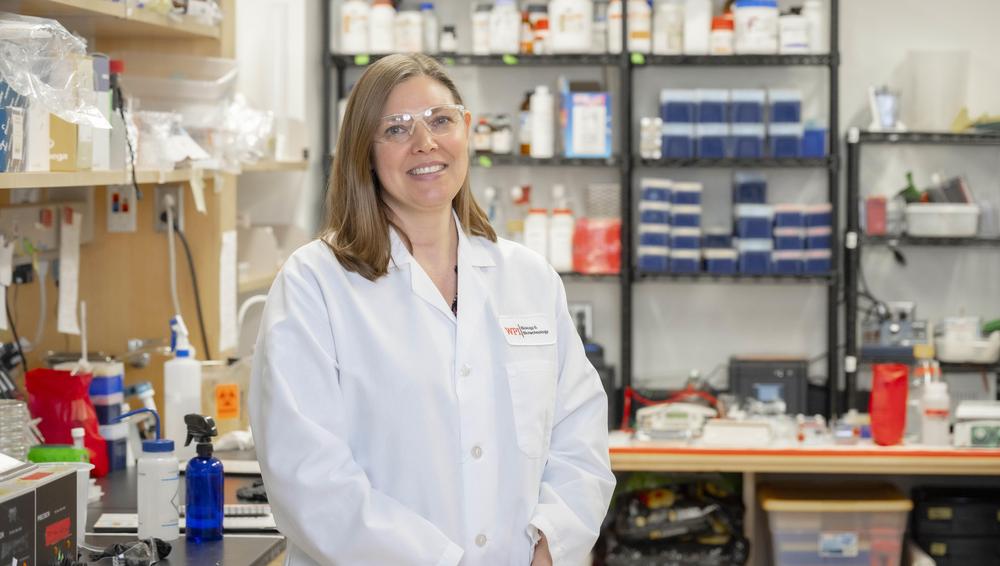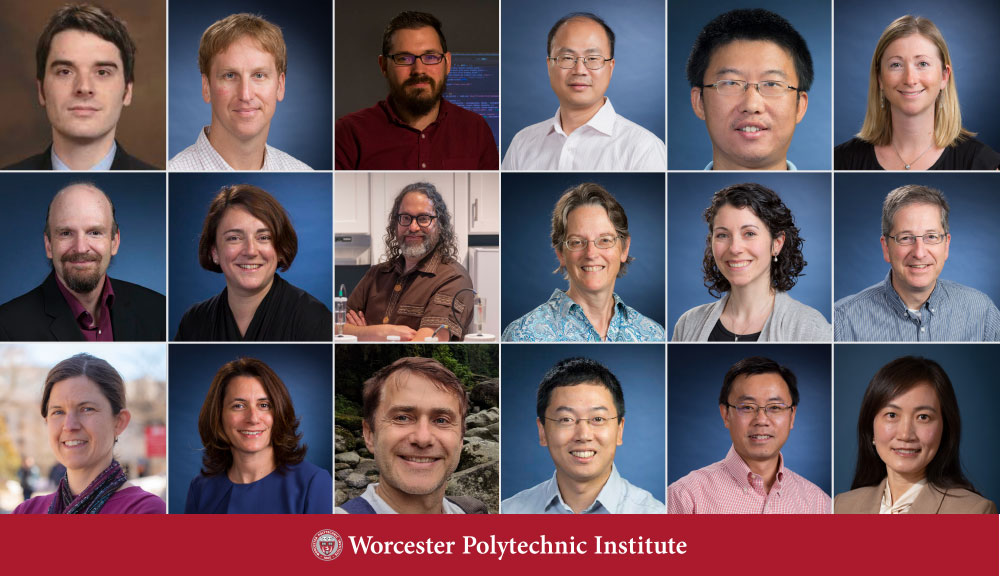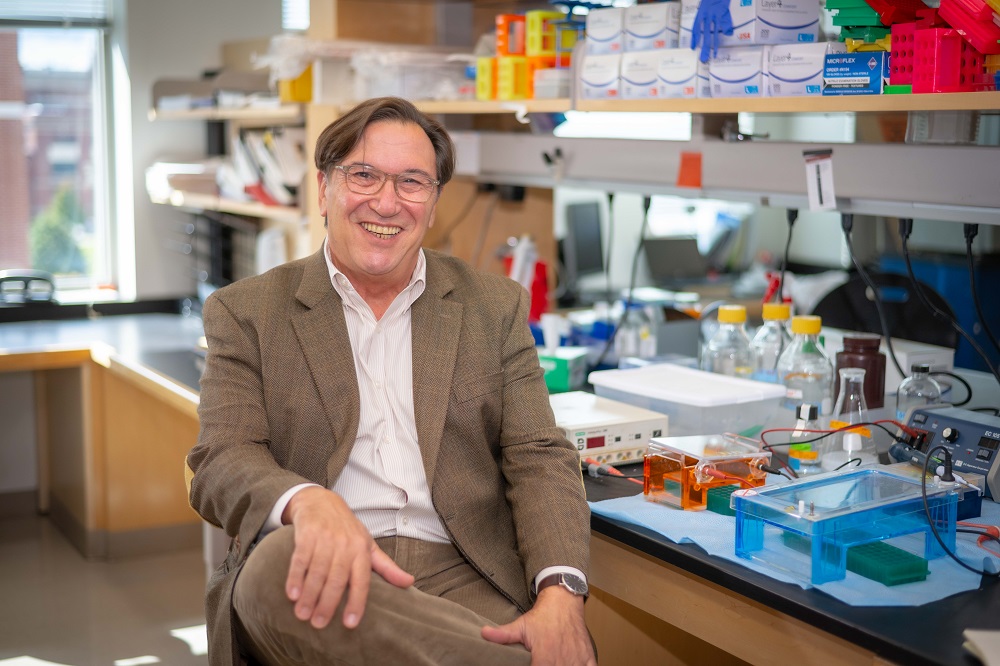As vacation homework assignments go, it wasn’t bad—dig up some soil near home and bring it to class after the break.
But the undergraduates at Worcester Polytechnic Institute (WPI) who gathered those soil samples are now using them to conduct research as part of a national program led by the Howard Hughes Medical Institute (HHMI) that seeks to enhance undergraduate life sciences education while also crowd-sourcing the discovery and characterization of viruses that attack bacteria.
"Historically, undergraduate labs have been ’cook book labs,’ where the students get a list of ingredients and a recipe. This is different," said Jill Rulfs, PhD, associate professor and associate head of WPI’s Biology and Biotechnology Department. "This is real research. There are different ways to approach it, and you don’t know what the results are going to be. It not only helps the students learn how research is done, but contributes real data to an important scientific project."
The program is called SEA-PHAGES, which stands for Science Education Alliance-Phage Hunters Advancing Genomics and Evolutionary Science. Phages, short for bacteriophages, are viruses that infect bacteria. While they are the most abundant organisms on the planet and likely play important roles in global ecology, the vast majority of phages have never been isolated or analyzed. To close that knowledge gap, SEA-PHAGES enlists thousands of undergraduates at more than 100 colleges and universities to become phage hunters and contribute their findings to a shared database for study. Institutions must apply to become part of the SEA-PHAGES program; if they are accepted, HHMI provides funding and trains faculty on the curriculum. The program is led by its founder, Graham Hatfull, PhD, an HHMI professor at the University of Pittsburgh.
"We were pleased to be accepted into this Howard Hughes program and look forward to growing it here at WPI," Rulfs said. "It’s part of our strategy to build authentic research into our undergraduate curriculum."
The SEA-PHAGES program includes two undergraduate courses. The first, which was offered in the fall, is the discovery phase where students collect soil samples and then use a variety of techniques to search for phages that infect the bacterium Mycobacterium smegmatis. The second course, which will run in the spring, will focus on analyzing the phages discovered in the fall, sequencing their genomes, and comparing them to the phages in the growing SEA-PHAGE database.
"As with any research, the students have had challenges and some glitches," said Michael Buckholt, PhD, associate teaching professor, who is leading the first SEA-PHAGES course at WPI. "But they are working through them and they understand that sometimes the results of an experiment are null and you have to start again with a new approach. Overall, it’s going well and several of the students have already found a phage."
"When I realized I had discovered a phage, it was so cool," said Rachel Brown ’18, a double major in bioinformatics and computational biology, and biology and biotechnology, who collected her soil sample near a vernal pool in Melrose, Mass. "It’s great to apply what you’ve learned in class to real research. It’s what I want to do."
If students isolate a novel phage, they get to name the strain and it will be added to the global database for teams of scientists around the world to use. Since 2008, students in the SEA-PHAGES program have isolated and characterized nearly 800 novel phages that infect Mycobacterium smegmatis. On April 28, 2015, the first peer-reviewed study from the SEA-PHAGES effort was published in the journal e-Life. The paper was authored by 199 faculty and 2,664 students at 81 institutions.
About Howard Hughes Medical Institute (HHMI)
HHMI is a science philanthropy whose mission is to advance biomedical research and science education for the benefit of humanity. It empowers exceptional scientists and students to pursue fundamental questions about living systems. Headquartered in Chevy Chase, Md., HHMI employs more than 3,000 individuals across the United States. In fiscal year 2013, HHMI invested $727 million in U.S. research and provided $80 million in grants and other support for science education.


